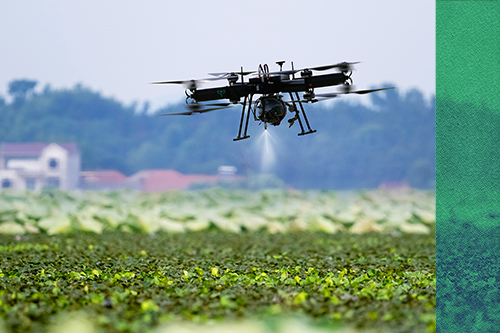Your daily trend radar - innovative startups, emerging trends and business ideas you don’t want to miss out. Sign-up and always be ahead.

Intro

Good morning and happy Friday! 🥳
With a fixed amount of farmland, and an ever-increasing world population creating a growing demand for food, farms are having to become more efficient. Today’s featured startup offers a fascinating solution to some of the issues. We do hope they succeed.
Today’s update is 422 words, 2.1 minutes.
Snippets
🚗 Robo-car for kids: If you’re interested in teaching your kids about programming, check out this cute little robot that helps kids to develop their problem-solving and programming skills. Deep Dive here →
❗ Banker Trojan: Meet ‘Bizzaro’, a new banking trojan sweeping through Europe, pilfering people’s banking credentials and other financial information. Deep Dive here →
🐕 Hi-tech dogs: An adorable army of special tech-detection Labradors are trained to sniff out USB and SIM cards that may otherwise be missed in criminal investigations. Deep Dive here →
🦾 Blind Robot: Engineers have trained a blind robot that can navigate a flight of stairs just by feeling its way, which would be helpful for robots in poor lighting conditions. Deep Dive here →
👍🏻 Robotic Augmentation: Ever wish you had a third thumb? Scientists have developed a robotic thumb that can be used for dexterous tasks. Deep Dive here →
Startup of the Day
Precision AI, Canada

Source: Precision.ai
What’s the deal: Saskatchewan-based Precision AI is making the future of farming healthier and more sustainable. Its system deploys hives of intelligent drones equipped with cameras and sprayers, that fly over the fields, automatically identify weeds, and spray them with pesticide or herbicide.
The drones have a 55-minute flight time and can carry up to 25 lbs (11 kg) of pesticides.
Using drones to control weeds on large fields is comparatively cheap, and can reduce the amount of pesticide used by up to 95% while maintaining crop yield.
Funding: Recently, the company has raised a $20M series A in both grants and equity.
Why it matters:
The over-spraying of herbicides has created numerous challenges in the agricultural industry.
- Each year, farmers spend over $25B on herbicides, but a huge proportion of these chemicals fail to reach their target.
- Instead, the chemicals land on soil or healthy plants, contaminating the soil and harming the environment.
- This is inefficient and drives up food costs.
Our take: Drones will revolutionize the farming industry with cost-effective, profitable and more efficient weed control solutions. The result: Significant cost reductions as well as substantial health and environmental benefits.
But, speed of take-up will be the key factor.
- Will old-school farmers adopt the high-tech solution quickly?
- Will the company be able to create a service network fast enough in many countries?
- Is legislation a problem in countries with strict drone-flying laws?
Bottom Line: We might see some fast followers quickly emerging, that will solve the issues locally.
Get smarter in just 3 minutes
Your trend radar - innovative startups, emerging trends and business ideas you don’t want to miss out. Sign-up and always be ahead.
